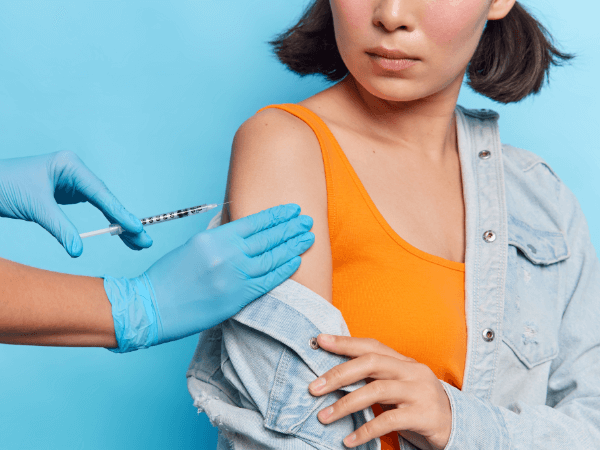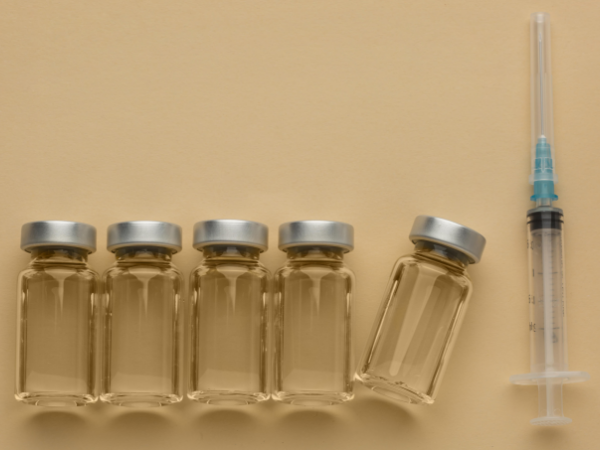Yellow Vaccine
What is Yellow Vaccine?
Composition: The Yellow Fever vaccine contains a live, attenuated (weakened) form of the yellow fever virus. This vaccine stimulates the immune system to produce antibodies, providing protection against yellow fever infection.
Schedule: The Yellow Fever vaccine is typically administered as a single dose. In most cases, a single dose provides long-lasting immunity and is considered sufficient for protection against yellow fever. However, in some situations, a booster dose may be recommended, such as for individuals who received their initial dose before the age of one or for those at ongoing risk of exposure to yellow fever.
Effectiveness: The Yellow Fever vaccine is highly effective at preventing yellow fever infection. According to the World Health Organization (WHO), a single dose of the vaccine provides immunity to approximately 99% of vaccinated individuals within 30 days of vaccination.
Safety: The Yellow Fever vaccine is generally safe and well-tolerated. Common side effects may include mild fever, headache, muscle pain, and injection site reactions. Serious side effects are rare but can include severe allergic reactions (anaphylaxis) or neurological complications.
Requirements for Travel: The Yellow Fever vaccine is often required or recommended for travelers visiting countries where yellow fever is endemic or where there is a risk of yellow fever transmission. Some countries require proof of yellow fever vaccination (in the form of a International Certificate of Vaccination or Prophylaxis, also known as a yellow card) for entry, especially if travelers are arriving from or have recently visited countries with yellow fever risk.
Contraindications: Some individuals should not receive the Yellow Fever vaccine due to certain medical conditions or allergies. These include people with severe allergies to any component of the vaccine, those with weakened immune systems, pregnant women (as the vaccine contains live viruses), and individuals with a history of thymus disorder or thymectomy.
Yellow Vaccine Price


What are the main risk factors for What is Yellow Vaccine?
Age: The Yellow Fever vaccine is generally recommended for individuals aged 9 months and older who are traveling to or residing in areas where yellow fever is endemic or where there is a risk of transmission. However, the vaccine is not typically administered to infants younger than 6 months due to safety concerns.
Health Status: Individuals with certain underlying health conditions may have an increased risk of adverse reactions to the Yellow Fever vaccine. These conditions include severe allergies to any component of the vaccine, weakened immune systems (e.g., due to HIV/AIDS or immunosuppressive medications), autoimmune disorders, and thymus disorders.
Pregnancy: Pregnant women are generally advised to avoid the Yellow Fever vaccine unless travel to a high-risk area is unavoidable. This is because the vaccine contains live, attenuated virus and could potentially pose a risk to the developing fetus.
Allergies: Individuals with a history of severe allergic reactions (anaphylaxis) to any component of the Yellow Fever vaccine, such as eggs or gelatin, should not receive the vaccine due to the risk of an allergic reaction.
Thymus Disorders or Thymectomy: People with a history of thymus disorders or those who have undergone thymectomy (surgical removal of the thymus gland) should not receive the Yellow Fever vaccine due to the potential risk of developing autoimmune complications.
Travel Plans: The main purpose of the Yellow Fever vaccine is to protect travelers visiting regions where yellow fever is endemic or where there is a risk of transmission. Therefore, individuals planning travel to these areas are considered at risk if they do not receive the vaccine.
Vaccine Recommendations and Requirements: Some countries require proof of yellow fever vaccination for entry, especially if travelers are arriving from or have recently visited countries with yellow fever risk. Failure to comply with these requirements may result in travel restrictions or quarantine measures.
High risk areas for Yellow Vaccine
- Africa:
- West Africa: Countries such as Nigeria, Ghana, Senegal, and Cote d’Ivoire are among those where yellow fever is endemic.
- Central Africa: Countries like Cameroon, Democratic Republic of the Congo, Angola, and Gabon have reported cases of yellow fever.
- East Africa: Parts of Uganda, Kenya, and Sudan have experienced yellow fever outbreaks.
2. South America:
- Brazil: Several regions of Brazil, including the Amazon basin, have reported cases of yellow fever.
- Peru: Certain areas in the Amazon rainforest region of Peru are at risk for yellow fever transmission.
- Colombia: Yellow fever cases have been reported in regions such as the Amazon and Orinoco river basins.
Main symptoms of Yellow Vaccine
Soreness at the injection site: Some individuals may experience mild discomfort or soreness at the site where the vaccine was administered. This is a common and expected reaction and typically resolves on its own within a few days.
Low-grade fever: A mild fever may occur in some individuals after receiving the Yellow Fever vaccine. This is often short-lived and usually resolves within a day or two.
Headache: Some people may experience a mild headache as a side effect of the Yellow Fever vaccine. This symptom is typically mild and transient.
Muscle pain or body aches: Mild muscle pain or body aches may occur in some individuals following vaccination. These symptoms are usually temporary and resolve without specific treatment.
Fatigue: Some individuals may feel tired or fatigued after receiving the Yellow Fever vaccine. This is a common side effect and typically resolves on its own within a short period.
Ways to minimise the risk of Yellow Vaccine during travel
Consult with a Healthcare Provider: Before traveling to regions where yellow fever is endemic or where there is a risk of transmission, consult with a healthcare provider or travel medicine specialist. They can assess your individual health status, vaccination history, and travel itinerary to determine if the Yellow Fever vaccine is recommended or required for your trip.
Vaccine Safety Precautions: Inform your healthcare provider about any allergies, medical conditions, or medications you may be taking. This information will help them assess your suitability for the Yellow Fever vaccine and identify any potential contraindications or precautions.
Timing of Vaccination: Plan to receive the Yellow Fever vaccine well in advance of your travel date, as it takes time for the vaccine to provide protection. The vaccine is typically recommended at least 10 days before travel to allow sufficient time for immunity to develop.
Vaccine Documentation: Ensure that you receive an International Certificate of Vaccination or Prophylaxis (yellow card) after receiving the Yellow Fever vaccine. This certificate may be required for entry into certain countries with yellow fever risk, and it serves as proof of vaccination.
Avoid Mosquito Bites: While the Yellow Fever vaccine helps protect against yellow fever, it’s essential to also take measures to prevent mosquito bites, as mosquitoes can transmit other diseases such as malaria, dengue fever, and Zika virus. Use insect repellent containing DEET, wear long-sleeved shirts and pants, and sleep under mosquito nets if staying in accommodations without screened windows or air conditioning.
Monitor for Adverse Reactions: Pay attention to any symptoms or adverse reactions you may experience after receiving the Yellow Fever vaccine. Common side effects such as soreness at the injection site, low-grade fever, headache, and muscle aches are usually mild and temporary. However, seek medical attention if you experience severe or persistent symptoms, such as difficulty breathing, swelling of the face or throat, or neurological symptoms.
Follow Travel Health Recommendations: In addition to receiving the Yellow Fever vaccine, adhere to other travel health recommendations provided by healthcare providers or travel medicine specialists. These may include vaccinations for other diseases, prophylactic medications for malaria or traveler’s diarrhea, and general hygiene and safety precautions.
Yellow vaccine
Composition: The Yellow Fever vaccine contains a live, attenuated (weakened) form of the yellow fever virus. This vaccine stimulates the immune system to produce antibodies, providing protection against yellow fever infection.
Schedule: The Yellow Fever vaccine is usually administered as a single dose. In most cases, a single dose provides long-lasting immunity and is considered sufficient for protection against yellow fever. However, in some situations, a booster dose may be recommended.
Effectiveness: The Yellow Fever vaccine is highly effective at preventing yellow fever infection. According to the World Health Organization (WHO), a single dose of the vaccine provides immunity to approximately 99% of vaccinated individuals within 30 days of vaccination.
Safety: The Yellow Fever vaccine is generally safe and well-tolerated. Common side effects, if any, are usually mild and temporary, such as soreness at the injection site, low-grade fever, headache, and muscle aches.
Travel Recommendations: The Yellow Fever vaccine is recommended for travelers visiting regions where yellow fever is endemic or where there is a risk of transmission. Some countries require proof of yellow fever vaccination for entry, especially if travelers are arriving from or have recently visited countries with yellow fever risk.
